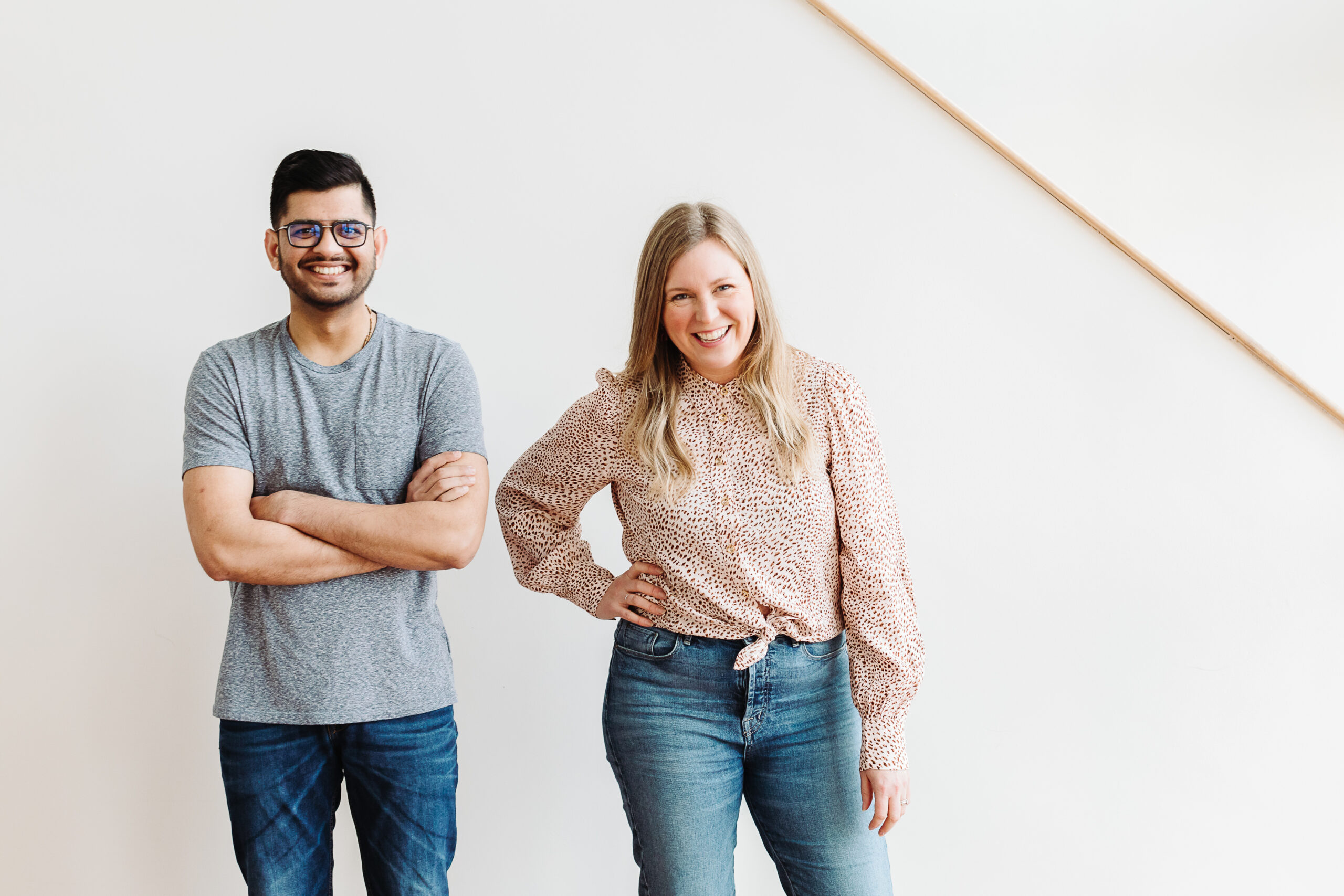The idea for Victoria-based Joni didn’t come to found Jayesh Vekariya in a dream. No, this origin story is a more practical one.
Vekariya, who has an MBA in entrepreneurship and an MSci in pharmacology, stumbled across a statistic that he just couldn’t get his head around—one in three Canadians under the age of 25 cannot afford menstrual care products. Vekariya said that’s more than 12 million people across North America who, every month, can’t afford an essential health product.
Lack of menstrual care isn’t just a monthly inconvenience. It impacts mental and physical health, education, access to opportunities, and family finances.
Alongside his co-founder Linda Biggs, Vekariya dug deeper into the “why” and found ways to simplify complex problems:
Rural-urban divide: Products that only cost $6 in urban centres could cost up to $25 in remote areas, where delivery is more difficult. The solution is almost comically simple. Instead of shipping its products in large square boxes which are classified as parcels, Joni uses long, thin boxes which are classified as letters. The cost of shipping drops to somewhere around $2. Joni covers the cost of shipping and is able to pass those savings on to the customer while also investing in higher-quality materials like organic bamboo to make its products more sustainable.
Lack of community funding: Joni found that many people were relying on community organizations and nonprofits for their monthly menstrual products—these organizations in turn rely on donations from other groups, which means that the products and quantities they receive are different every month. To support these groups, five percent of Joni’s revenue goes to specific community partners who can then rely on consistent funding. The company currently works with over 20 national and 400 local nonprofit partners.
Daily accessibility: Anyone who’s used the women’s washroom in a school or office will have seen the traditional, mechanical, and surprisingly expensive product dispensers. Sometimes they’re empty. Sometimes they’re broken. Joni again decided that the simplest solution was the best one and developed a gravity-fed dispenser where products can be easily added and simply fall down a chute. There’s no risk of a knob getting stuck, and Joni’s dispensers sell for $60 instead of $400-$500.
For organizations looking for a more robust solution, Joni has also developed a smart and more secure dispenser. Connected to the building’s wifi, the IoT dispensers are monitored through an app, which means that maintenance teams can see which washrooms have empty or malfunctioning dispensers.
As Vekariya put it, innovation isn’t always in products (although Joni has that too). We met to hear more about why IP matters to his business and what he learned with AccelerateIP.
How is IP important to your business?
So much of what Joni does is taking complex processes and making them simple–but simple solutions are easy to replicate. That makes it even more important that we protect the solutions.
What was your experience like in stream 1?
Stream 1 gave us a great foundation for understanding the importance of IP, how it impacted our business, and how we could begin thinking about an IP strategy.
We learnt about different IP approaches and the terminology used so that when we were ready to talk to lawyers or patent agents, we’d be better prepared for those conversations. The objective was to prepare ourselves to start building an IP strategy with a strong understanding of not just the legal requirements but also thinking ahead about the revenue opportunities.
We also heard from instructors with diverse experience who were able to distill their experiences into learnings for the whole group.
The cohort was the perfect size and made up of founders from different backgrounds. It was interesting to hear from founders at different stages of the IP journey and with different levels of experience.
What were your key takeaways from Stream 1?
Stream 1 is a three-day program, which gave us plenty of time for in-class learning with instructors and peers, as well as time afterward to reflect on our IP strategy, which served as the foundation for Stream 2 and Stream 3.
Although I covered IP strategy in my MBA, Stream 1 dives deeper, focusing on the unique needs of early-stage entrepreneurs. It emphasizes laying the groundwork to align IP strategy with business goals from day one, without the need for a massive budget, which helps ensure a solid foundation that supports growth and scale-up ambitions.
Joni continued on to Streams 2 and 3. What was that like?
Whereas Stream 1 was building the foundational knowledge, Stream 2 was about applying that knowledge and developing Joni’s IP strategy.
We worked with McMillan LLP in Vancouver; they conducted an IP audit and evaluated all of our trademarks and patents. They found loopholes and missed opportunities that we weren’t aware of and helped us look at our IP portfolio from a more strategic perspective. Together, we made a plan to create a solid IP strategy.
We’re currently in Stream 3 of the program and are now implementing that strategy. For example, some of our trademarks had different products listed in the U.S. versus in Canada and, we had made design updates to some of our patented products.
We’re also working on removing legacy patents and adding new patents to our portfolio.
It’s been rewarding to see this process come full circle. Our product roadmap has significantly improved based on how products fit into our IP portfolio and business strategy.
What would you tell someone thinking about taking part in AccelerateIP?
This program is the chef’s kiss–it’s great. I’ve taken part in other IP programs that provided funding to analyze the problem. This is the first program I’ve found where you not only learn about intellectual property, but you’re supported in taking the next step and building and implementing an IP strategy.




